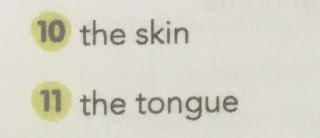Good morning! Happy new Monday!
ENGLISH
Dear kids:
On Tuesday, Wednesday and Thursday you will have special zooms with Brandon and Kath! Those meetings are specially designed for you and we expect you have some fun with them. Kath and Brandon appreciate you a lot 🥰🥰
Here you are the list and the time to participate.
With Kath:
11:00 David Avanesyan, Alba, Ali, Agustín and Theo.
11:30 María, Yanira, Alan, Angélica, Andrea.
12:00 Alejandra Hurtado, Christian, Alex, Mateo, Marta.
12:30 Luna, Pablo, Sara, Diego Mishael.
13:00 Raisha, Nur, Paula Solana, Amalia, Darío.
With Brandon:
11:00 Carlos Canales, Diego Gonzalo, Aitana, Aisha.
11:30 Álvaro, Iker, Ángel García, Sofía, Paula Jiménez.
12:00 Ada, Ángel Bergerie, Iván, Alexia.
12:30 Sergio, Samuel, Carlos Santos, David Gascón.
13:00 Emma, Bianca, Martín, Daniel Torres, Lucas.
And now some English practice... sorry! The last thing you will see with me! 🙏🏻
THE FIRST AND THE SECOND CONDITIONAL
Conditionals or “condicionales” describe the result of something that might happen (in the present or future) or might have happened but didn't (in the past) .
Las frases condicionales describen el resultado de algo que podría pasar (en el presente o en el futuro) o que pudieran haber pasado pero no ocurrieron en el pasado.
A éste tipo de frases se las llama también “if clauses” porque usan mucho “if” ( Ex. Si me pongo un jersey en junio me voy a asar)
There are four different types of conditionals: The zero conditional, the first and the second conditionals and the third conditional. But don’t worry! You will learn just the first and the second!
THE FIRST CONDITIONAL:
It's used to talk about things which might happen in the future. Of course, we can't know what will happen in the future, but this describes possible things, which could easily come true.
- If it rains, I won't go to the park.
- If I study today, I'll go to the party tonight.
- If I have enough money, I'll buy some new shoes.
- She'll be late if the train is delayed.
- She'll miss the bus if she doesn't leave soon.
- If I see her, I'll tell her.
THE SECOND CONDITIONAL
It is used to talk about things in the future that are probably not going to be true or to imagine things.
- If I won the lottery, I would buy a big house.(I probably won't win the lottery)
- If I met the Queen of England, I would say hello.
- She would travel all over the world if she were rich.
- If I had her number, I would call her. (I don't have her number now, so it's impossible for me to call her).
- If I were you, I wouldn't go out with that person.
Now click on these videos:
1) Selfcorrection:
Page 62, activities 1,2 and 3:
Page 63 activities 7, 10 and 11:
2) Fine kids. Time to pick up your Natural Science book and review pages from 54 to 57 🤓
REVIEW FOR A WHILE. 10 MINUTES AT LEAST. DON’T CHEAT!! I’m watching you!
3) Ready for some quizzes?
Review the parts of the eye clicking on this link. In this link there are more parts than the ones you have to learn in year 6 but I find it is also interesting to know other parts indirectly. The ones you have to know are: pupil, iris, lens, retina and optic nerve.
So don’t frustrate, you don’t have to know all of them at the moment! 😉
3) Now let’s see how much you know about ears. Click at the end on “finish quiz” and you will have the percentage of right answers you have. You can see the right answers scrolling down there.
4) And what about the sense organ of nose? What do you know about it? Click at the end on “finish quiz” and you will have the percentage of right answers you have. You can see the right answers scrolling down there.
5) Let’s finish with this interesting video about the skin. I’m sure you don’t know about this and it will help you appreciate your skin. Specially on that summer begins and you have to take care of it






